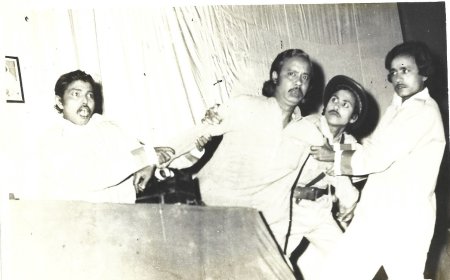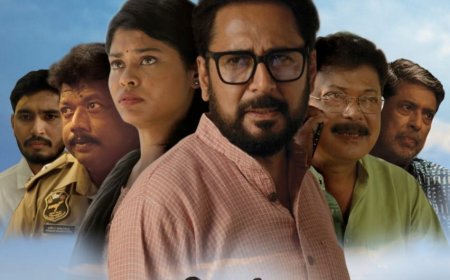Zubeen Garg: An Embodiment of Life Itself
Film critic Prantik Deka pays tribute to the legend, Zubeen Garg.
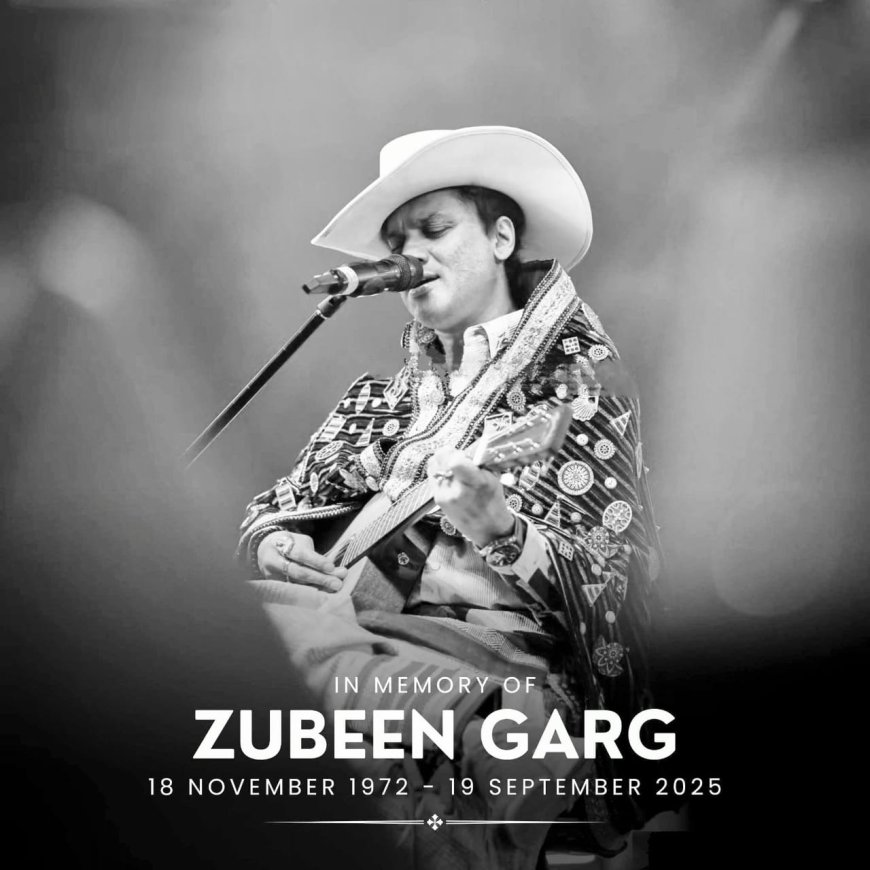
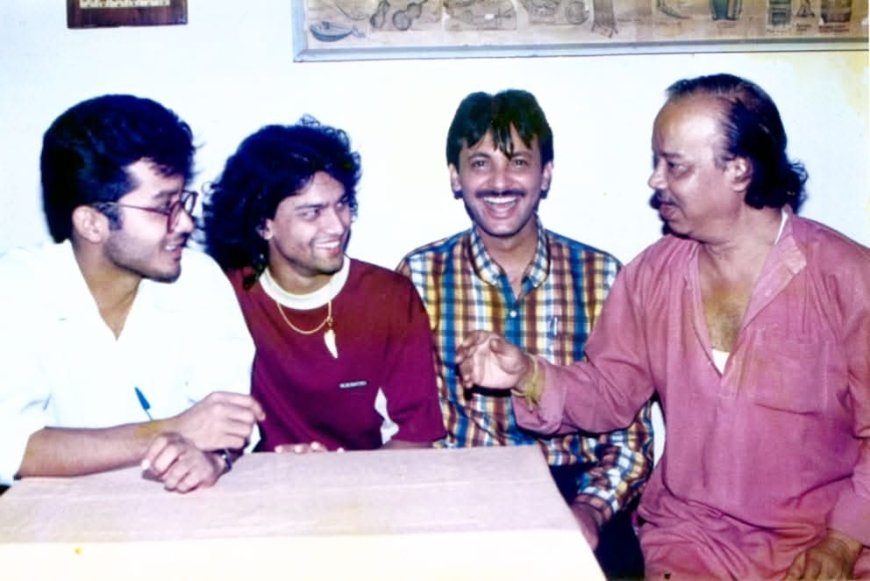
Pabitra Margherita, Zubeen Garg and Debo Borkotoky with Pabitra Kumar Deka during the launch of 'Tumi Mor Matho Mor' in 1999.
The vibrant era of the 1990s saw the grand entrance of Zubeen Garg into the mesmerising realm of Assamese music. He embarked on his musical journey as a skilled instrumentalist, gracing numerous events in the 1990s with his musical prowess, sharing the stage with renowned Assamese musicians, thus igniting the beginning of his musical path. Even though Zubeen Garg embarked on his musical journey as an instrumentalist, he didn’t just stop there. Alongside mastering musical instruments in his youth, he also delved into the world of vocal music, honing his skills in both realms. Due to his father’s job necessitating frequent transfers, Zubeen Garg and his family never found a place to call home, always on the move, never able to put down roots. However, Zubeen gained a wealth of experience journeying to different places.
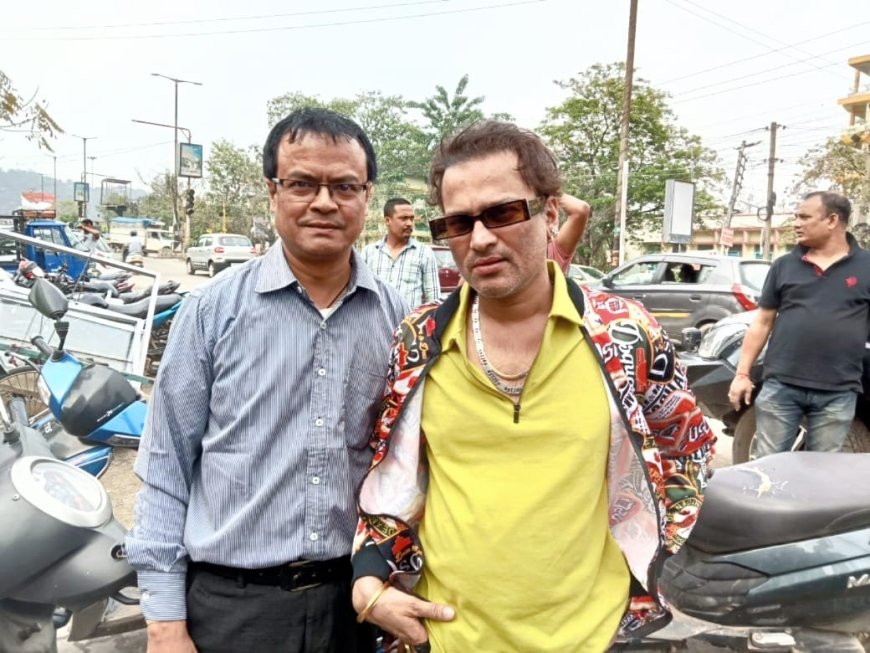
Author Prantik Deka with Zubeen Garg
From the enchanting Tura in Meghalaya, he swiftly moved on to explore Tamulpur, Karimganj, Bijni, Jorhat, and Guwahati in quick succession. Zubeen demonstrated an early aptitude for assimilating the rich cultural and ethnic diversity that characterises Assam. Shortly after beginning his musical journey as an instrumentalist, Zubeen Garg made the bold choice to unveil his talents as a singer. During his time as a student at B Borooah College in Guwahati, Zubeen Garg showcased his exceptional singing talent and was awarded the title of the best singer at the Youth Festival organised by Gauhati University. With a heart full of passion and a soul yearning for melodies, Zubeen Garg made a life-altering choice to immerse himself entirely in the enchanting world of music, bidding adieu to his unfinished undergraduate studies. In 1992, an album titled ‘Anamika’ was released by Zubeen Garg.

Actually, the Assamese music scene was going through a really tough period back then. The dearth of creativity and fresh ideas led to a deep sense of disappointment among the people when it came to the local music scene. In that era, a svelte adolescent with lengthy hair made a notable entrance into the realm of Assamese music. Simultaneously with the release of ‘Anamika’, another album titled ‘Anuradha’ was launched by the same studio. Since Zubeen was a complete newcomer, the ‘Anuradha’ album received greater emphasis compared to the ‘Anamika’ album. During the festive season of Durga Puja, excitement filled the air as people eagerly awaited the release of the ‘Anuradha’ album, expecting its sales to soar above those of ‘Anamika’, given the extensive promotion it was receiving.
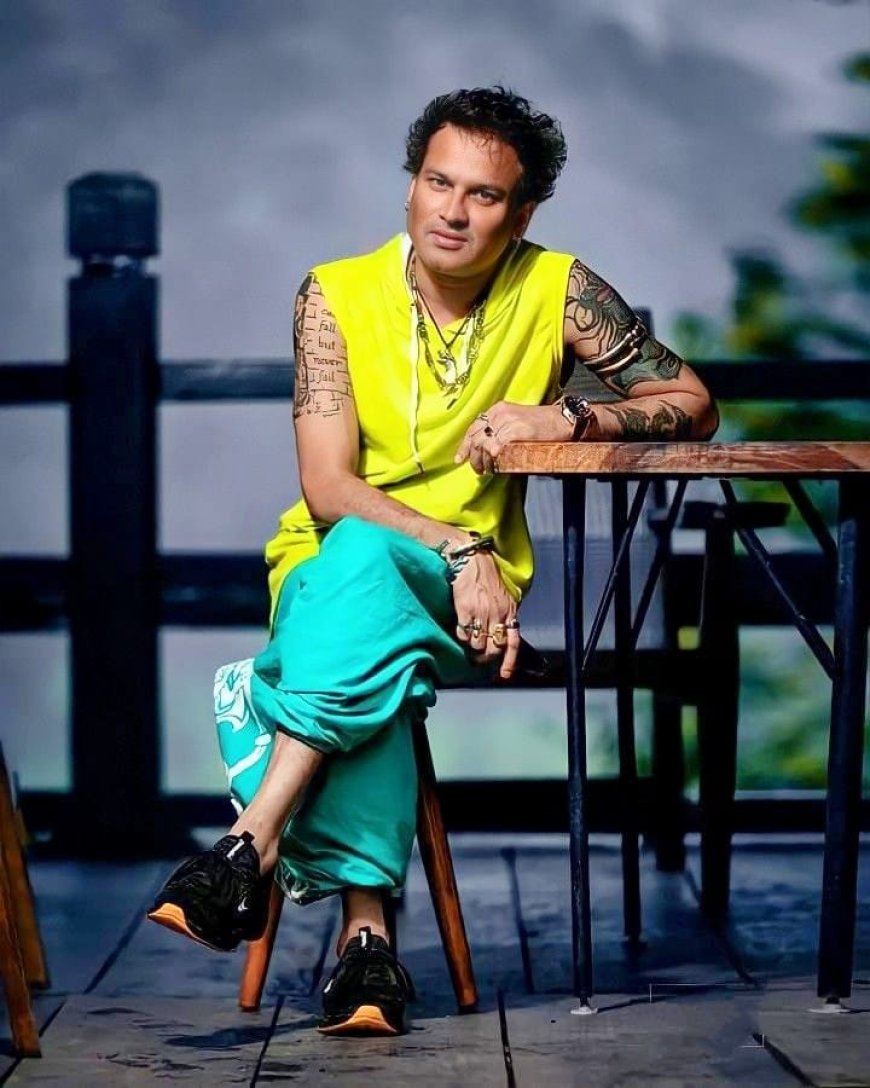
Nevertheless, preceding the onset of Durga Puja’s Dashami, a remarkable piece of information had startled the masses. Passionate music aficionados from various regions of Assam anxiously snapped up every single cassette of the ‘Anamika’ album from local retailers before the auspicious arrival of Dashami. A fresh melody resonated through Assam as the talented Zubeen Garg emerged as a new singing sensation.
Since then, Zubeen’s musical journey has been a soaring crescendo, never once casting a glance over his shoulder.

The tumultuous decade of the 1990s was marked by significant upheaval, disorder, and conflict, characterised by pronounced tension and discord as various generations engaged in intense struggles between traditional values and the rapid acceleration of change. In a world where hopes and uncertainties mingled, young people craved a guiding light to articulate their complex ideas and high aspirations. Zubeen Garg emerged as the echoing resonance of their unspoken words, a melody that harmonised with the cacophony of their innermost desires. Each of his compositions embodied the intense spirit of revolutionary zeal, the heartfelt charm of unfulfilled dreams, and the lively rhythm reflecting a community in the midst of significant change. With each album, he has weaved together tunes that have struck a deep chord with audiences all across the world, embracing themes of love, sorrow, and resilience. Zubeen’s musical abilities surpass the mere combination of musical notes and written words. His compositions create a poignant harmony that connects with profound sentiments and undisclosed narratives, offering solace to individuals in need of emotional relief. His captivating voice not only appeals to young people but also strikes a chord with individuals of all ages, from children to the elderly.
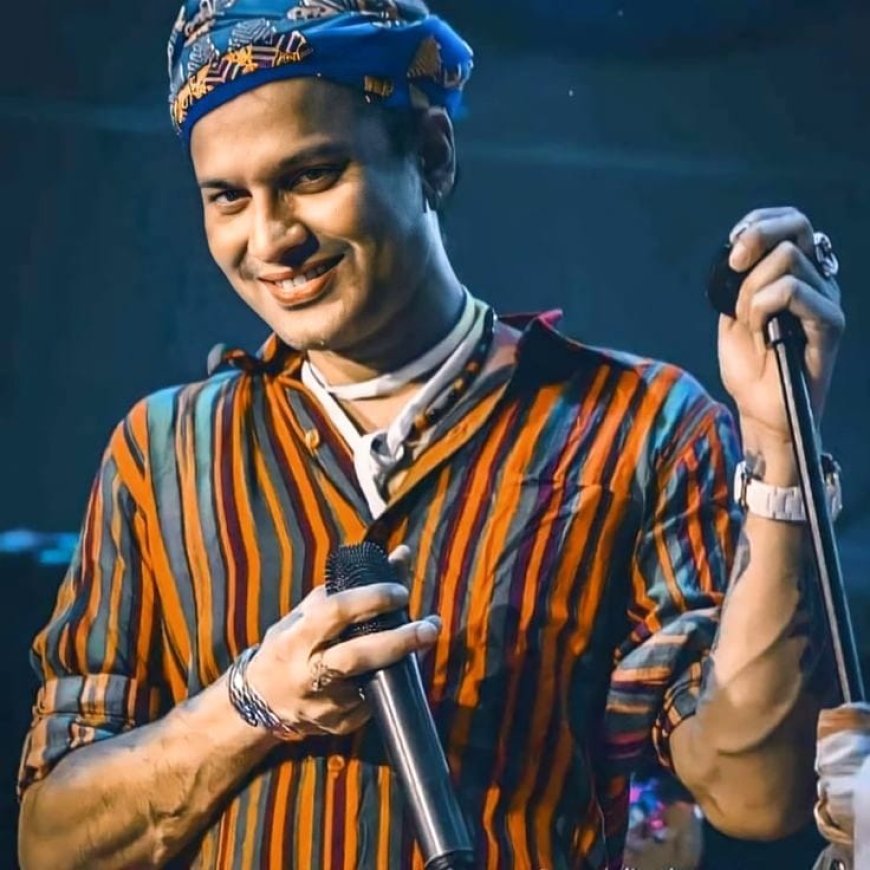
Zubeen Garg’s musical influence extends beyond Assamese songs, with his versatile voice featured in over 40,000 songs across 40 Indian languages. Numerically speaking, this represents the greatest number of songs and languages performed by any singer globally who lived to just 52 years of age. This could be considered a world record for Zubeen Garg, although not officially acknowledged. After carving his name into the soul of Assam as Zubeen Garg, he embarked on a voyage to the vibrant metropolis of Mumbai. Zubeen Garg had lent his voice to several songs in Mumbai. Among these, the most noteworthy is the captivating ‘Ya Ali’ from the film ‘Gangster’ for which Zubeen Garg was honoured with the prestigious Global Indian Film Award (GIFA) for Best Male Playback Singer in 2006. Despite Zubeen Garg’s rise to fame as a singer in the Bollywood industry, his heart remained anchored to the very soil where his journey began. Subsequently, he made a conscious decision to permanently relocate to Assam, where he deeply immersed himself in the vibrant world of Assamese music, while many of his peers meandered towards Mumbai in pursuit of Bollywood stardom. Zubeen Garg was resolute in his decision to remain in Assam to concentrate on enhancing the region, rather than confronting the intense competition for jobs in Mumbai. Zubeen left no room for doubt as he showcased his deep-rooted Assamese heritage with unwavering pride. By ingeniously creating, recording, and presenting the core essence of Assamese music within his native land, he infused new vitality into Assamese melodies with his diverse musical explorations, ranging from rock and blues to reggae, folk, soulful hymns, and romantic ballads, reviving a long-lost sense of confidence.
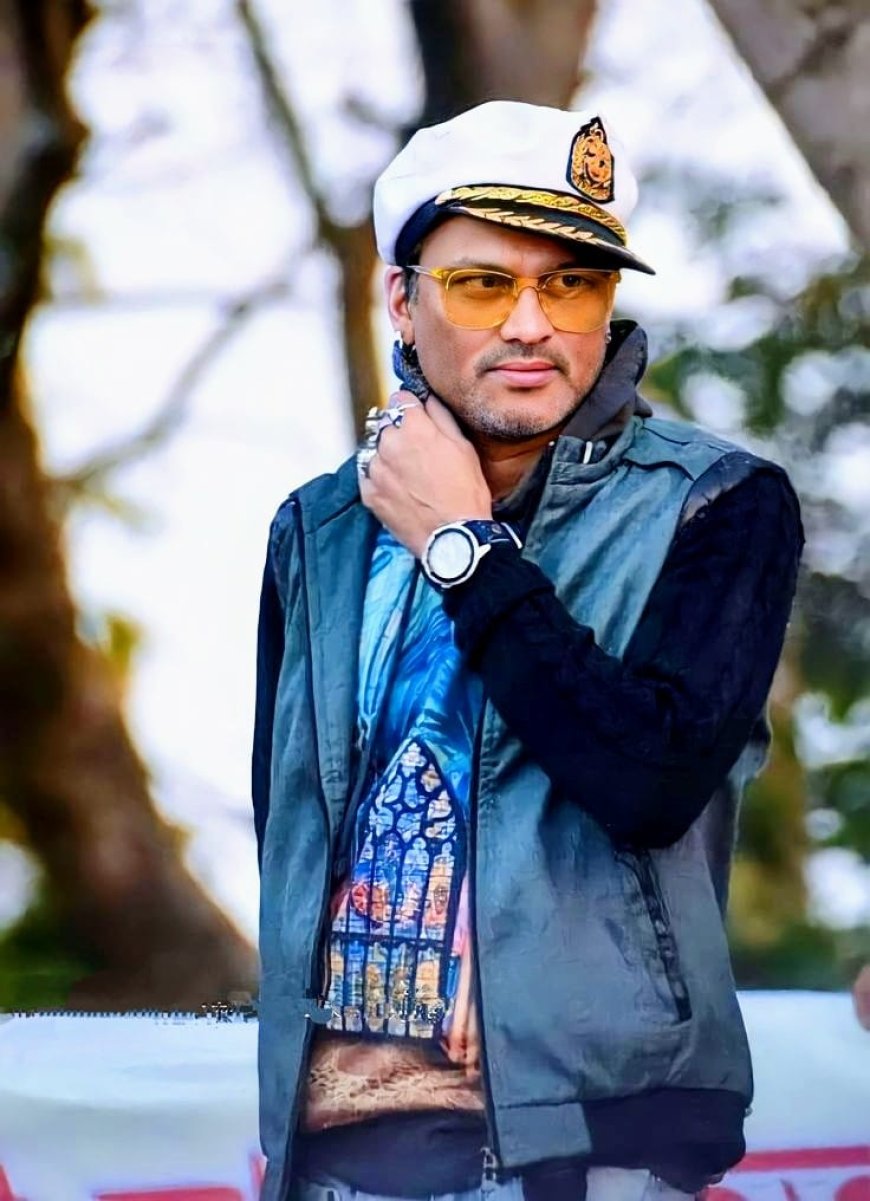
From the tranquil lands of Assam to the lively avenues of Mumbai, his music is not just about sounds; it is a part of his core that he shares with fans around the globe. In intimate settings or grand venues alike, his captivating ability to forge deep bonds with his listeners is truly enchanting, leaving each person feeling as if his music was tailor-made just for them. His voice is a vessel of solace for the souls seeking comfort. Zubeen’s voice acted as a unifying force, connecting people from different social backgrounds and with diverse beliefs.
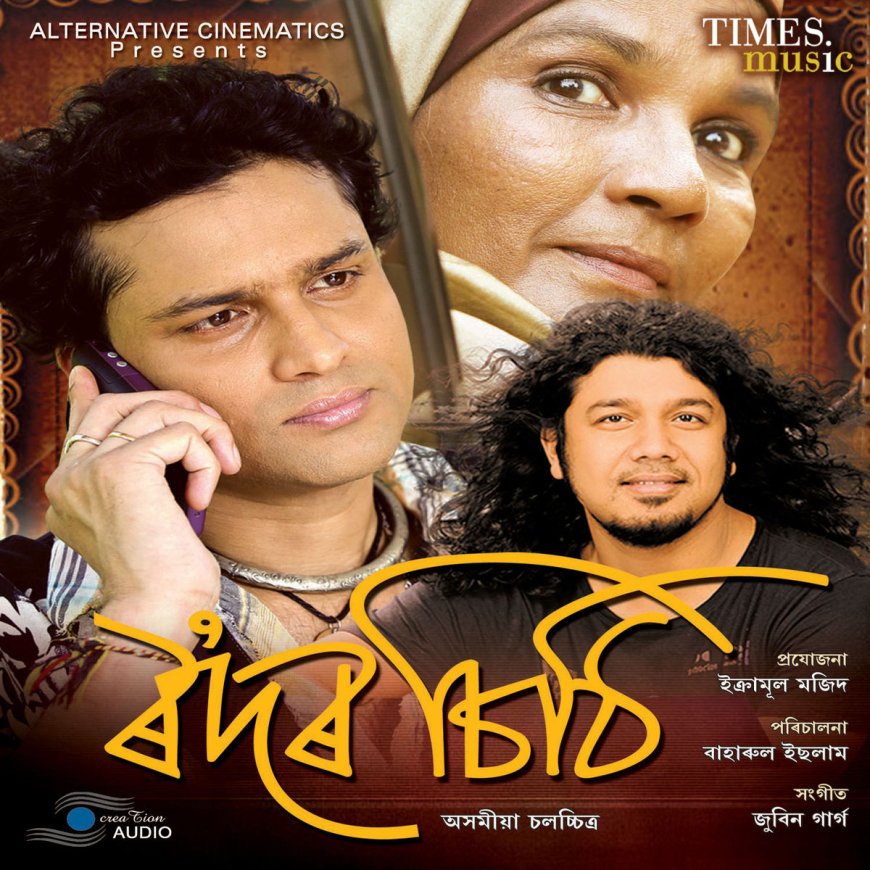
Zubeen poured his heart and soul into his work until his final moments, showing unwavering dedication and commitment. Zubeen Garg wasn’t merely a singer; he embodied much more than that. He was a versatile artist who excelled in a myriad of creative endeavours. From singing and composing music to directing, writing lyrics, and arranging music, he delved into a vast spectrum of artistic roles. Beyond music, he ventured into acting, directing, and producing films, delved into poetry, showcased instrumental talents, and actively participated in social causes. His deep love for nature shone through, portraying him as a unique individual characterised by a diverse array of talents and interests. Zubeen Garg not only breathed new life into the fading music scene of Assam but also injected fresh vitality into the stagnant Assamese film industry with his groundbreaking directorial venture ‘Mission China’. The transformative initiative undertaken by Zubeen Garg played a pivotal role in the resurgence of the Assamese film sector. A skilled performer, Zubeen has showcased his versatility as an actor through a myriad of roles in films such as ‘Tumi Mor Matho Mor’ (2000), ‘Dinabandhu’ (2004), ‘Mon Jai’ (2008), ‘Rodor Sithi’ (2014), ‘Gaane Ki Aane’ (2016), ‘Xaat Nomboror Xondhanot’ (2016), ‘Mission China’ (2017), ‘Kanchanjangha’ (2019), ‘Dr. Bezbaruah 2’ (2023), ‘Sikaar’ and ‘Wide Angle’ (2024).
Zubeen Garg’s life illuminates a profound lesson – no matter how high one climbs the ladder of success, the flame of affection for their roots and community should never flicker out. Zubeen remained anchored to the soil that nurtured him and the people who shaped his journey. Zubeen Garg has led the Assamese community from the front at various times and in various situations.

It is widely recognised that Zubeen Garg was a generous benefactor who engaged in philanthropic endeavours. In Assam, the crowd flocking to political leaders for financial aid during hard times is almost matched, if not surpassed, by those turning to Zubeen Garg for help. Zubeen had a reputation for never letting anyone down who sought his assistance, be it at his doorstep or in his presence. His generosity knew no bounds, as he willingly poured back almost every penny he earned from his audience right back into the community that adored him. Zubeen Garg has consistently demonstrated a commitment to assisting everyday individuals in any circumstance, whether it be in providing treatment for various incurable illnesses or addressing personal family issues. In times when his own pockets were empty, Zubeen Garg never hesitated to extend a helping hand, going as far as seeking assistance from others to aid those in need. He always saw himself as one with the ordinary folks. Whether he was enjoying a cup of tea at a local roadside stall or checking on the welfare of every individual he encountered during his travels, these actions defined Zubeen Garg as someone deeply connected to his roots.
I was fortunate to cross paths with Zubeen multiple times in the midst of his adoring fans. During these encounters, he not only inquired about my well-being and that of my family but also shared heartfelt memories of his special relationship with my late father, the esteemed cultural journalist Pabitra Kumar Deka, whom Zubeen affectionately referred to as ‘kokaideu’. Since the early 1990s, amidst his hectic schedule, the lively Zubeen Garg would often find time to visit my father, relishing quiet moments. Our residence located at Pub Sarania’s byelane 2 was a popular destination for a multitude of guests representing Assam’s rich literary, cultural, and political spheres. Seated next to my father, Zubeen exhibited a keen interest in the domains of film and cultural studies, displaying great enthusiasm as he immersed himself in the books generously provided by my father from his carefully assembled private collection. Our home was the launchpad for Zubeen Garg’s romantic hero debut in the 2000s film ‘Tumi Mor Matho Mor’ which also marked his directorial debut. The event was attended by journalists from print media and well-known celebrities. Furthermore, our home also saw the launch of several albums featuring Zubeen Garg on various occasions, making it a special place for his artistic beginnings. Surprisingly, my father, who had been a homebody for many years, made an unexpected appearance at Zubeen Garg’s wedding. Zubeen shared in an interview that he had managed to persuade my father to step out of his comfort zone after approximately 16-17 years of staying put!
Despite his constant preoccupation, Zubeen carried a profound emotional burden stemming from the premature loss of his mother and sister Jonkey, leaving an unhealed void in his heart. Likewise, Zubeen experienced significant distress due to the pain endured by his father, Kapil Borthakur, as well as the overwhelming demands from his fans and supporters.
Zubeen Garg has consistently steered clear of political affiliations to dedicate himself to the interests of the people, acting as their advocate and representative. He consistently demonstrated unwavering support for the Assamese society during periods of adversity and challenges. Amidst the global health crisis of the COVID-19 pandemic in 2021, Zubeen repurposed his two-storied residence in Guwahati into a COVID care facility, thereby facilitating the provision of essential medical services to those affected by the virus. Just imagine the boundless generosity and profound humanity that dwelled within his heart!
Zubeen truly had a deep love for nature. In everything he did – his art, his life, and his commitment to social causes – he championed the importance of caring for and respecting the natural world. Zubeen’s residence situated amidst the picturesque verdant hills of Kharghuli, on the southern bank of the Brahmaputra River in Guwahati, serves as a manifestation of his profound appreciation for the natural world. Zubeen demonstrated unwavering dedication to safeguarding the environment through active participation in wildlife preservation, environmental conservation, and tree planting initiatives. His creative prowess and deep-seated affection for nature find expression not only in his musical compositions but also in his personal actions and initiatives. Passionate and unwavering, Zubeen also consistently raised his voice to champion mental health awareness throughout the state.
Zubeen Garg made a conscious decision not to have children of his own, opting instead to focus on serving society. Understanding that his descendants would make up the fabric of society, he took on a fatherly role towards 15 children, offering them the care, love, and assistance needed to help them achieve their goals, much like a biological father does for his own kids.
The potential resurgence of a popular singer may be conceivable. Nevertheless, it is highly unlikely that during our lifetime, we will encounter another individual who shares such a profound resonance with the masses, traversing through the realm of music. Zubeen Garg, with his boundless youthful vigour, and distaste for limits, has left behind a luminous heritage of happiness, togetherness, and compassion that will forever be cherished in our hearts.
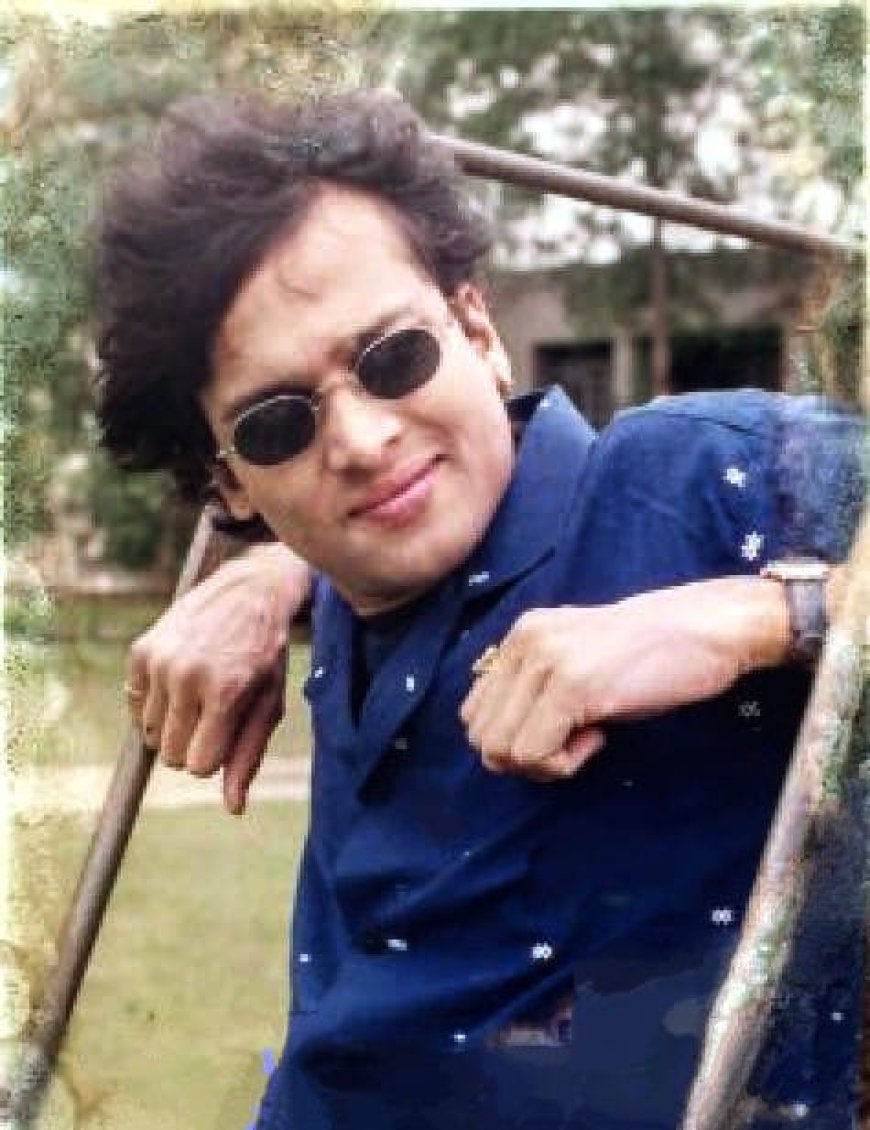
Zubeen Garg in the early 2000s. Photo: Anupam Hazarika
A beacon of inspiration who shone brightly through his steadfast dedication to music, cultural empowerment, and charitable endeavours, Zubeen Garg illuminated our world with the sheer brilliance of his essence.
***
What's Your Reaction?





















































